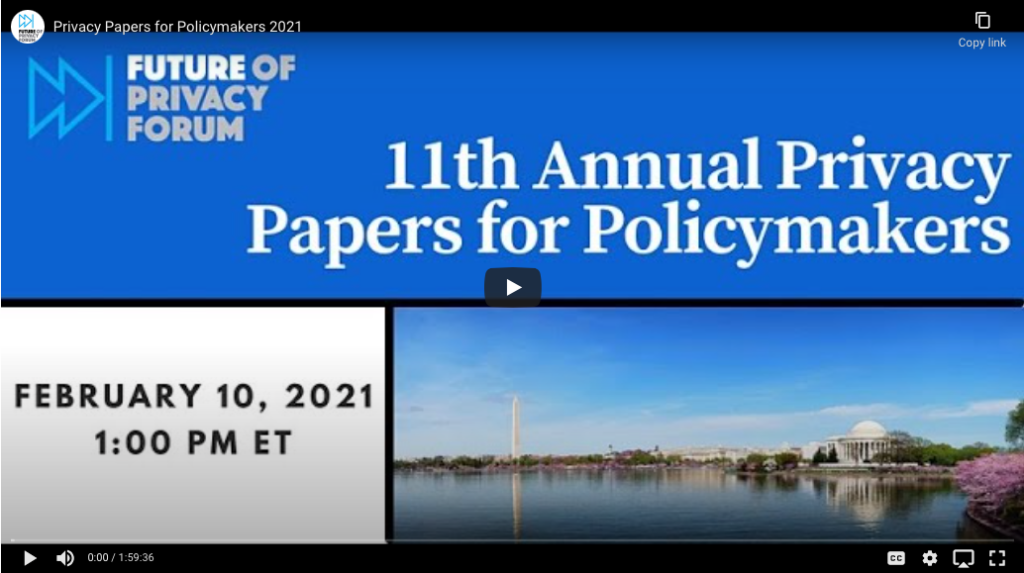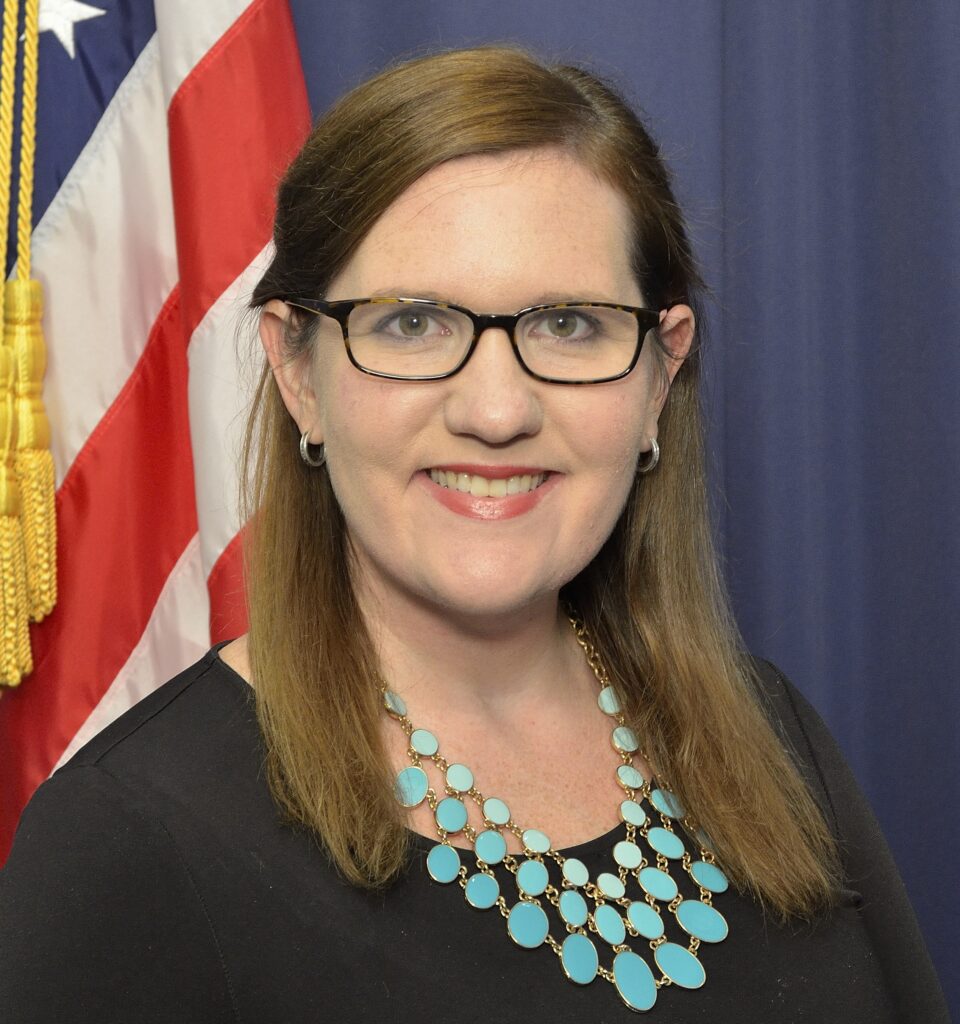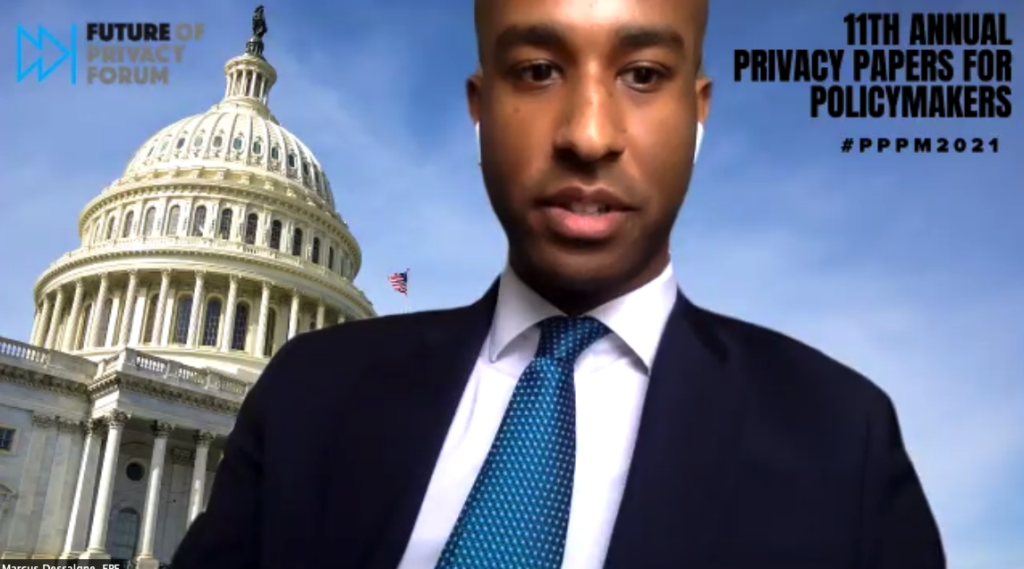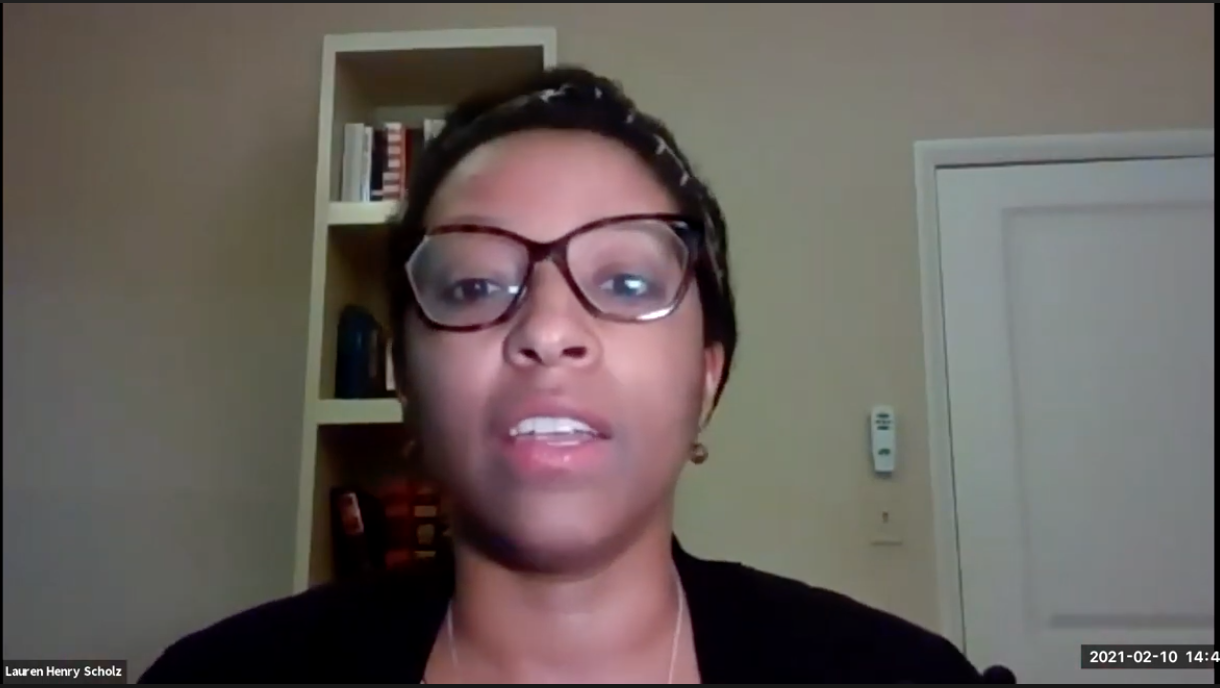Acting FTC Chairwoman Slaughter Highlights Priorities in Privacy Papers for Policymakers Event Keynote

The Future of Privacy Forum’s 11th-annual Privacy Papers for Policymakers event – the first event in the series to take place virtually – was a success! This year’s event featured a keynote speech by Acting FTC Chairwoman Rebecca Kelly Slaughter and facilitated discussions between the winning authors – Amy B. Cyphert, Clarisse Girot, Brittan Heller, Tiffany C. Li, Kenneth Propp, Peter Swire, and Lauren H. Scholz – and leaders from the academic, industry, and policy landscape, including Elana Zeide, Anupam Chander, Joan O’Hara, Jared Bomberg, Alex Joel, and Syd Terry.

In her keynote address, which was also her first major speech as acting chair of the Federal Trade Commission, Acting FTC Chairwoman Slaughter outlined three of her major privacy-related priorities for the Commission:
1. Making enforcement more efficient and effective. Acting Chairwoman Slaughter observed how the COVID-19 pandemic has “only amplified the need for strong legislation at the federal level, as it has pushed more of our work, our children’s education, and even our personal interactions online, exacerbating data risks.” She explained that the FTC would need to “think creatively” to make enforcement efforts more effective without benefit of a federal privacy law. She posed the following guiding questions to center the discussion around enforcement:
- Are we doing everything we can to deter future violations, both by the particular company at issue and by others in the market?
- Are we doing everything we can to helped wronged consumers?
- Are we using all the tools in the FTC’s toolbox to fully charge offenses and pursue misconduct?
She specifically flagged two types of relief that she believes the FTC is well-positioned to seek and achieve: meaningful disgorgement and effective consumer notice. She also stated that the FTC needs to “think carefully about the overlap between our work in data privacy and in competition,” arguing that the FTC’s dual missions to protect privacy and maintain competitive markets “can and should be complementary” as the Commission looks at problems that arise in digital markets through both privacy and competition lenses.
2. Protecting privacy during the pandemic. Acting FTC Chairwoman Slaughter acknowledged that responding the COVID requires an “all-hands approach” and that the FTC has several important roles to play as part of the solution, including addressing “COVID-related scams to privacy and security issues to an economic crisis.” She identified three key focus areas:
- Ed-tech. The ubiquity of distance learning during the pandemic means that the ed-tech industry has exploded. She noted that the FTC has released guidance for parents, schools, and ed-tech providers on protecting privacy. She also stated that the Commission is conducting an industry-wide study of social media and video streaming platforms, in which they ask about the ed-tech services that those platforms provide. Finally, she noted that the FTC is currently reviewing the COPPA Rule and how it applies to the ed-tech space, stating: “We don’t need to complete our rulemaking to say that COPPA absolutely applies to ed-tech, and companies collecting information from children need to abide by it.”
- Health apps. She asked FTC staff to take a close look at “all health apps, including telehealth and contact tracing apps,” acknowledging the growth of telehealth apps during the COVID-19 pandemic.
- Transparency around ISPs’ privacy practices. She noted that the pandemic has made the importance of reliable Internet much greater, as businesses, schools, governments, and communities have struggled to find new models for staying open. She called on the FTC to issue a report on the privacy practices of ISPs in 2021.
3. Racial equity concerns in data use and abuse. Acting FTC Chairwoman Slaughter asked: “How can we at the FTC engage in the ongoing nationwide work of righting the wrongs of four hundred years of racial injustice?” She identified four key areas where the FTC could approach racial equity from the consumer protection angle:
- Overlap between equity and COVID-19 privacy issues. She observed that the pandemic has exacerbated equity gaps including the “digital divide,” observing that many children lack the necessary equipment or Internet access needed to participate in distance learning. She also noted that digital services “sometimes target vulnerable communities with unwanted content and that vulnerable communities suffer outsized consequences from data privacy violations. She stated: “we need to be wary about the ways in which lower-income communities are asked to pay with their data for expensive services they cannot afford.”
- Algorithmic discrimination. She said that as sophisticated algorithms are deployed in ways that impact people’s lives, “it is vital to make sure that they are not used in discriminatory ways.” She stated that the FTC has begun engaging on this issue, citing a recent report that included guidance for businesses on illegal uses of big data algorithms, including discrimination. She stated that she has “asked staff to actively investigate biased and discriminatory algorithms, and I am interested in further exploring the best ways to address AI-generated consumer harms.”
- Development and deployment of facial recognition technologies. She noted that there is “clear and disturbing evidence that these technologies are not as accurate in identifying non-white individuals,” citing wrongful arrests based on faulty facial recognition matches. She stated that the Commission will “redouble our efforts to identify law violations” in the facial recognition space.
- Misuse of location data. She cited articles that emerged last summer about mobile apps’ use of location data to identify characteristics of Black Lives Matter protesters and stated that she is particularly concerned about the misuse of location data as it applies to tracking Americans engaged in constitutionally protected speech.
You can read Acting FTC Chairwoman Slaughter’s full remarks at PPPM 2021 on the FTC website.
Following Acting Chairwoman Slaughter’s keynote address, the event turned to moderated discussions between the authors of the award-winning papers and leaders from the academic, industry, and policy landscapes. Click the links below to read each of the winning papers, or read the 2021 PPPM Digest to read summaries of the papers and learn more about the authors and judges.
- Tinker-ing with Machine Learning: The Legality and Consequences of Online Surveillance of Students, by Amy B. Cyphert, West Virginia University College of Law. For PPPM 2021, Amy was joined by Elana Zeide, Assistant Professor at the University of Nebraska College of Law, who served as a discussant for the event.
- Transferring Personal Data in Asia: A Path to Legal Certainty and Regional Convergence, by Clarisse Girot, Asian Business Law Institute. For PPPM 2021, Clarisse was joined by Anupam Chander, Professor of Law at Georgetown University Law Center, who served as a discussant for the event.
- Reimagining Reality: Human Rights and Immersive Technology, by Brittan Heller, Carr Center for Human Rights, Harvard University. For PPPM 2021, Brittan was joined by Joan O’Hara, Senior Director of Public Policy at the XR Association, who served as a discussant for the event.
- Privacy in Pandemic: Law, Technology, and Public Health in the COVID-19 Crisis, by Tiffany C. Li, Boston University School of Law. For PPPM 2021, Tiffany was joined by Jared Bomberg, Senior Counsel at the U.S. Senate Committee on Commerce, Science, and Transportation, who served as a discussant for the event.
- After Schrems II: A Proposal to Meet the Individual Redress Challenge, by Kenneth Propp, Georgetown University Law Center; and Atlantic Council & Peter Swire, Georgia Tech Scheller College of Business; Alston & Bird LLP; and Future of Privacy Forum. For PPPM 2021, Kenneth and Peter were joined by Alex Joel, Project Lead for Privacy, Transparency, and Trust at the American University Washington College of Law, who served as a discussant for the event.
- Fiduciary Boilerplate, by Lauren Henry Scholz, Florida State University College of Law. For PPPM 2021, Lauren was joined by Syd Terry, Legislative Director and Policy Coordinator for the U.S. House Committee on Energy and Commerce, who served as a discussant for the event.
Thank you to Acting FTC Chairwoman Slaughter and to Honorary Co-Hosts Senator Edward Markey and Congresswoman Diana DeGette for their support and work around this event. We would also like to thank our winning authors, discussants, everyone who submitted papers, and our event attendees for thought-provoking work and support. Learn more about the event on the FPF website and watch a recording of the event on the FPF YouTube channel.
Images from the 2021 Privacy Papers for Policymakers Event







